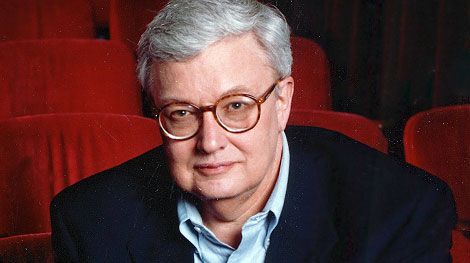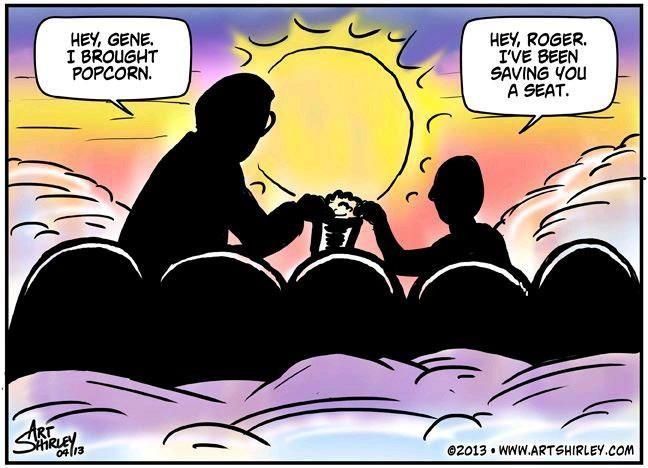What Roger Ebert Meant to Me
I
do not think that Great Roger Ebert was an infallible film critic. I think he had a tendency to like too many
movies, to be too pig-headedly stubborn in his dislike of others, and his
long-held belief that video games are not, nor can ever be, art is one that
still rankles sorely in this household.
Yet
I love Roger Ebert, faults and all. And
when I heard that he died yesterday, I was very, very sad.
In
many ways, I am a product of what Ebert (and Siskel) did with their radio show
then television show in the seventies and eighties. Ebert (and Siskel) brought film criticism to
the masses, made it not just about watching the movies but talking about them
afterwards, and made it okay and acceptable for everyone to do this, not just
those trained in journalism or film techniques.
Ebert (and Siskel) bridged the gap between the “elite critics” and us
couch critics, testifying that it was alright if we had an opinion too. Everyone’s allowed.
But
while I appreciate that about Ebert, that’s not why I’ll miss him. Perhaps that’s the biggest impact he has had
on me subconsciously, but much more acutely, I’ll miss his film criticism.
When
I started seriously delving into film and film study in 2005/2006, it didn’t
take me long to discover Ebert’s book The Great Movies. This and its two sequels, after 1001
Movies, are my go-to film books. In
it, Ebert doesn’t simply pick the best films from a certain year, but instead,
writes about the greats. There is no
ranking – the films are arranged alphabetically – and Ebert himself states that
the one hundred movies in volume one are not the one hundred best, they are
simply the first one hundred great films he wrote about.
I
greatly respect this approach to film criticism. Don’t get me wrong, I love making lists,
rating films, assigning rankings, but it’s hard. There are a lot of movies out there that I
just love. And I love that Ebert felt
the same way and said “I want to write about these greats without bothering to
rank them. So here they are, here’s a
hundred of them, there’s more where that came from.”
The
fact that he loved film so absolutely is also inspirational. Yeah, I thought he could get a bit
overexcited about films I didn’t think were all that great, but really, it just
goes to show his enthusiasm for the medium.
And that’s so important. I never
want to get cynical about the movies. I
will not – I WILL NOT – watch a movie if it feels like work. That will sully the experience. If that means it takes longer for me to
finish the list of films I’m working on, then so be it. But I’m okay with that in part because of
Ebert’s enthusiasm. He loved
movies. He really did.
And
he loved so many different kinds of movies.
When you look at the titles in his The Great Movies, there are
films from every genre. He was all about
keeping an open mind. I carry that
philosophy with me. Perhaps I may need
reminding of it every now and then, but it’s definitely worth remembering.
And
then there are the essays themselves. I
love Ebert’s writing. He has a wonderful
sense of balancing the personal with the technical. He knows how to describe his perhaps
illogical love for something so well, and then go on to discuss the symbolism
of the lighting choices in key scenes. I
love how free he was in including personal anecdotes in his essays. He realized that he, as an audience member,
was part of the film’s experience, and he included himself when he wrote. Ebert was never “removed” from the article or
essay, oh no. He was there all over the
place. He wasn’t afraid to make his film
criticism about his personal taste or experience.
And
frankly, that’s what I love most about Ebert, and what I’ll miss most about
him. His writing is such a perfect
balance between the technique and the passion of filmmaking, it almost makes me
sad to think I’ll never come close to being that good. Ebert is my biggest inspiration when I write
about film. I want to write about film
the way that he did. It honest to
goodness makes me very very sad to think we’ll never get any new reviews from
him, no new essays from him, no new personal anecdotes about the time he saw City
Lights in a piazza in Italy.
When
I started writing more about film, I tried a couple different writing styles,
but I kept on coming back to Ebert’s.
His writing is what engaged me most as a reader. Naturally this is what I would gravitate
towards as a writer myself.
I’ll
miss you, Roger Ebert. I really
will. You are my single greatest
inspiration in this crazy hobby of film-blogging.


Such a heartfelt post. I first encountered Ebert back during his "Sneak Preview" days with Siskel. I commemorated his death by buying his latest book of reviews panning bad movies, which I find hilarious. Amazing that he could write with so much humor and zest under such circumstances.
ReplyDeleteThank you. I was emotional when I wrote it, I've been emotional re-reading it, more so than I thought I would be.
DeleteEbert was a really, really great writer. Even to the very end, the stuff he was writing on his personal blog was so engaging.
Great write-up and great illustration. I hadn't seen it until now.
ReplyDeleteI didn't mention it in my post, but you know what else Ebert was very good at? Film commentary tracks. His track for Citizen Kane is perhaps the most informative, best organized, and still relevant track that I have ever heard - and I've listened to hundreds of movies' commentary tracks. If you have not listened to it yourself, I highly recommend it. It's on the Kane double disk DVD (and presumably the blu-ray).
Ooh, thanks for the tip. I will *definitely* be sure to listen to that next time I watch Citizen Kane. I always wish I could have attended one of those "frame-by-frame" workshops of his... for any movie, really. I imagine his film commentary is the closest I'll get to those lectures. Good call.
Delete